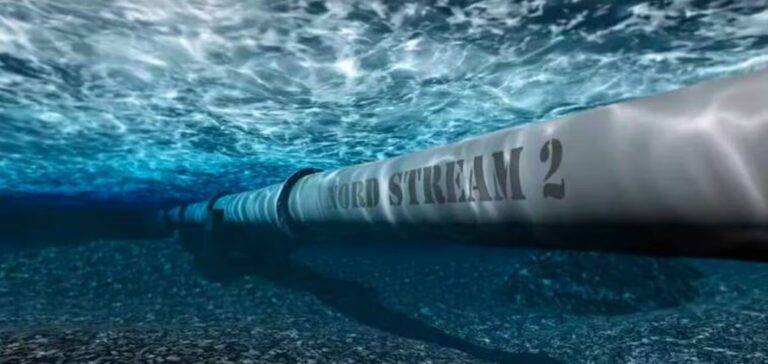The Federal Republic of Germany has confirmed, through Foreign Minister Annalena Baerbock, that it has no intention of reviving the Nord Stream 2 pipeline, which has been out of service since the explosions in 2022. Speaking at a press conference in Kyiv alongside Ukrainian President Volodymyr Zelensky, Ms Baerbock recalled that the project had proven to be a strategically costly error for her country.
“The wrong decision on Nord Stream 2 cost us dearly as a German society,” stated the foreign minister, adding that the multi-billion-euro investment did not justify reactivation. She specified that the decision stemmed from a previous federal government’s policy, with the endorsement of the conservative party now in power in Berlin.
The pipeline as a symbol of energy disconnection
Designed to double the volume of Russian gas supplied to Germany, the 1,200-kilometre-long Nord Stream 2 was never brought into operation. Two conduits of its predecessor, Nord Stream 1, were destroyed during Baltic Sea explosions in September 2022. Only one line of Nord Stream 2 remains technically intact, fuelling speculation for several months.
An article published by Financial Times in early March referred to the possibility of a partial restart of the pipeline as part of a potential rapprochement between the Kremlin and Donald Trump. Russian Foreign Minister Sergei Lavrov confirmed the existence of discussions between Moscow and Washington, suggesting that European energy supply was among the issues under consideration.
Berlin shuts the door despite economic pressure
Questioned on these exchanges, Annalena Baerbock made a clear distinction between internal political debates and the official state position. She explained that German voices supporting a reassessment of the project were not part of the country’s strategic or economic decision-making bodies. “These are not leading German politicians,” she stated.
Germany’s economy, affected by two consecutive years of recession, remains vulnerable to energy import concerns. Nevertheless, Ms Baerbock reaffirmed that energy security cannot be separated from political stability across the European continent. Her statement, made during her ninth visit to Ukraine since the outbreak of the conflict in February 2022, underscores Berlin’s strategic alignment amid rising diplomatic tensions with Moscow.






















